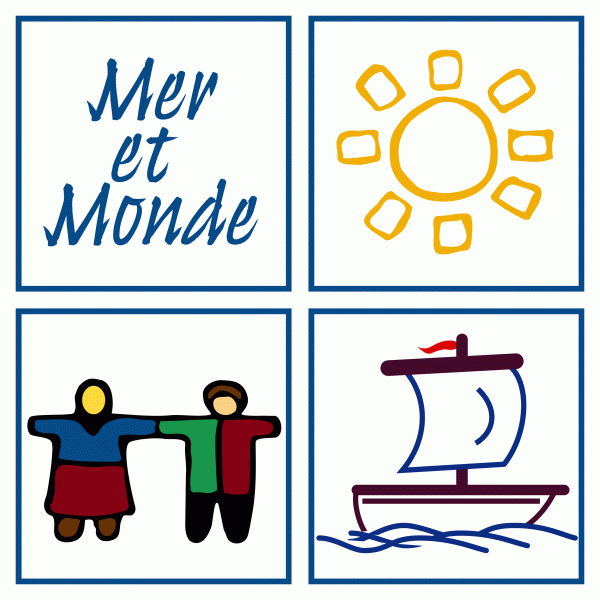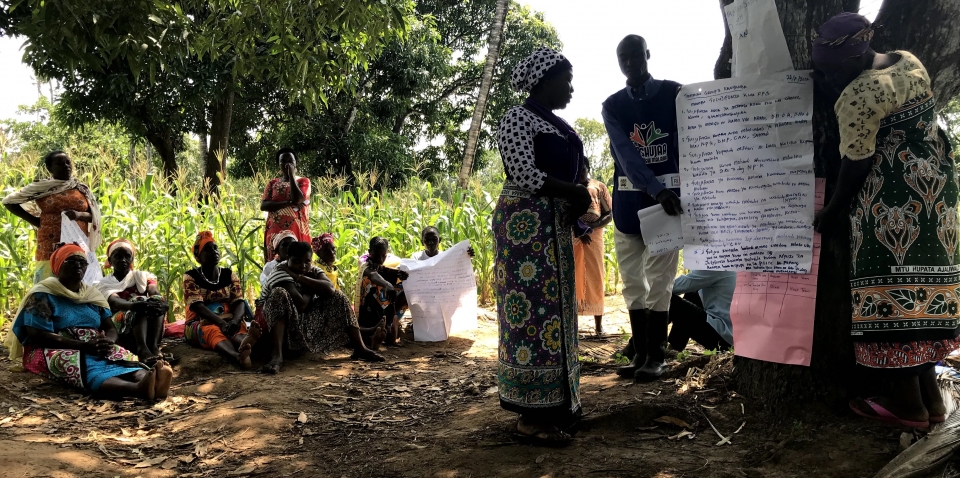Farmers’ Field Schools (Champs-Écoles des Producteurs – CEP) to strengthen the resilience of the Lehar populations in Senegal (SAGA Project)
Mer et Monde promotes solidarity and international cooperation. Through internships and intercultural exchanges, the NGO has implemented initiatives to support local development by providing access to medical equipment, achieving food security, and improving resilience to climate change.


Overview of the project
The initiative of Mer et Monde, named “Si at Fiki: Together let’s move forward,” is part of the capacity building component of the global project, “Food Security: Adapted Agriculture (SAGA)”, coordinated by the Food and Agriculture Organization of the United Nations (FAO,) and implemented with the technical and financial support of the Government of Quebec.
The initiative was implemented with the participation of 4 villages in Lehar, a region located in the north of the Thiès region (Senegal). It consisted of training for facilitators in the field-school approach that lasted several months, and had to be adapted to the context of the coronavirus pandemic.
At the end of the activities, 20 villagers were trained as field-school facilitators. They are now able to pass on their knowledge, and facilitate field schools in their own villages. This will contribute to the effort to build the capacity of local populations to adapt their practices to be more resilient to climate change. During this training, perimeters were used as training fields where several climate change resilient market gardening techniques were tested, such as non-toxic pest control, insect zoo or the zaï method (a method to restore degraded land by improving its fertility, reducing the risk of water erosion, and promoting water infiltration in the soil). The training was concluded with an open-house day respecting the distancing measures, and a virtual open-house day was also conducted to make the RWH approach known more widely.
Improve resilience to climate change, food and nutrition security (Thiès, Senegal).
Ongoing research
12/5/2019 - 01/31/2021
- This project involved 4 villages in the commune of Pambal, district of Tivaouane (Senegal)
- 20 villagers, 62% of whom are women and 38% of whom are young people, have been trained to be facilitators in the field-school approach
- These facilitators have already multiplied their knowledge among the 62 producers of their villages in 4 field schools
- Many of them practice their new knowledge in their family plots, and continue to share their knowledge within the community market garden perimeter
- Requests from several neighbouring villages to access to this new knowledge show the extent of the need for crop adaptation in the area
- The field school approach links theory to practice and provides access to new analytical methods and techniques adapted to climate change
- The activities develop the participants’ ability to identify constraints, and enable them to make appropriate decisions based on observation, analysis and evaluation of their farming practices
- During the training, everyone’s contribution (youth, women and men) is valued
- The involvement of local authorities favours the success of the initiative
- Today, the people who have been trained have experienced the difference between ancestral market gardening techniques and those adapted to climate change, and are promoting them to their peers
The "Sécurité alimentaire: une agriculture adaptée (SAGA)" / "Food Security: an adapted agricultural practice" project is coordinated by the Food and Agriculture Organization of the United Nations (FAO,) and implemented with the technical and financial support of the Government of Quebec.
organisation
Mer et Monde promotes solidarity between people and initiates international cooperation.
Each year, more than 300 people benefit from an internship, and intercultural exchange by being matched with local families and partners in Senegal and Nicaragua.
Mer et Monde has implemented small local development support initiatives through these internships, allowing:
- its partners to access medical equipment and/or to repair infrastructures
- for women’s groups to be better equipped to achieve food security and improve their resilience to climate change
Since 2019, the NGO has been implementing large-scale development projects in response to the strengthening needs of its partners.
in collaboration


